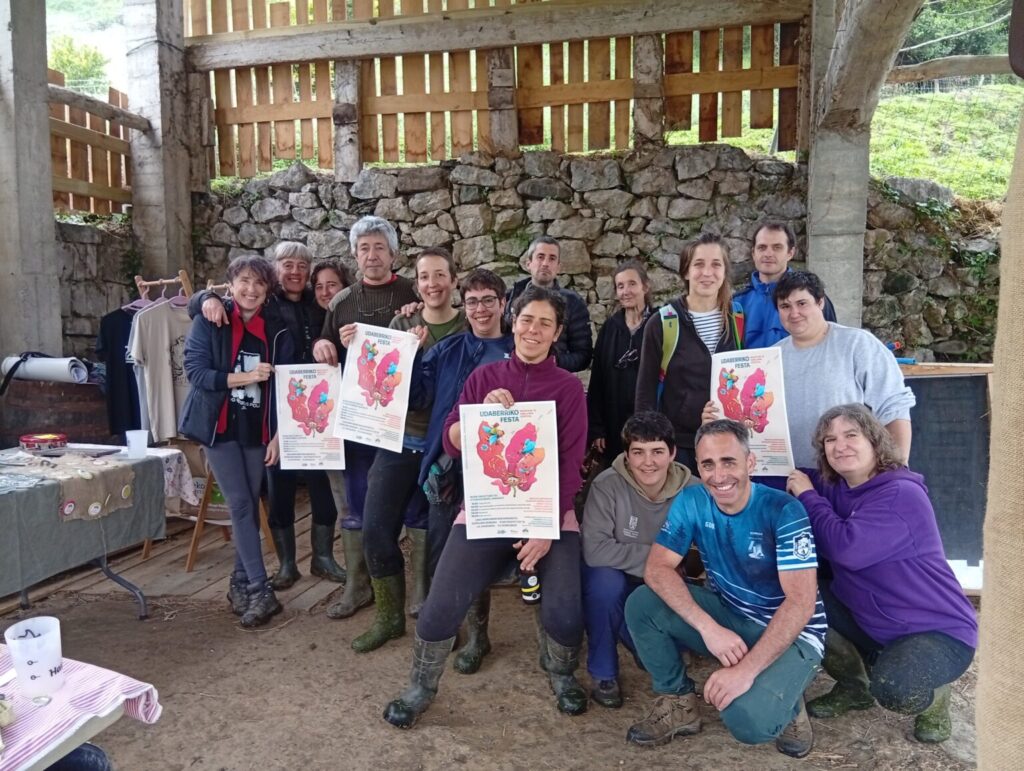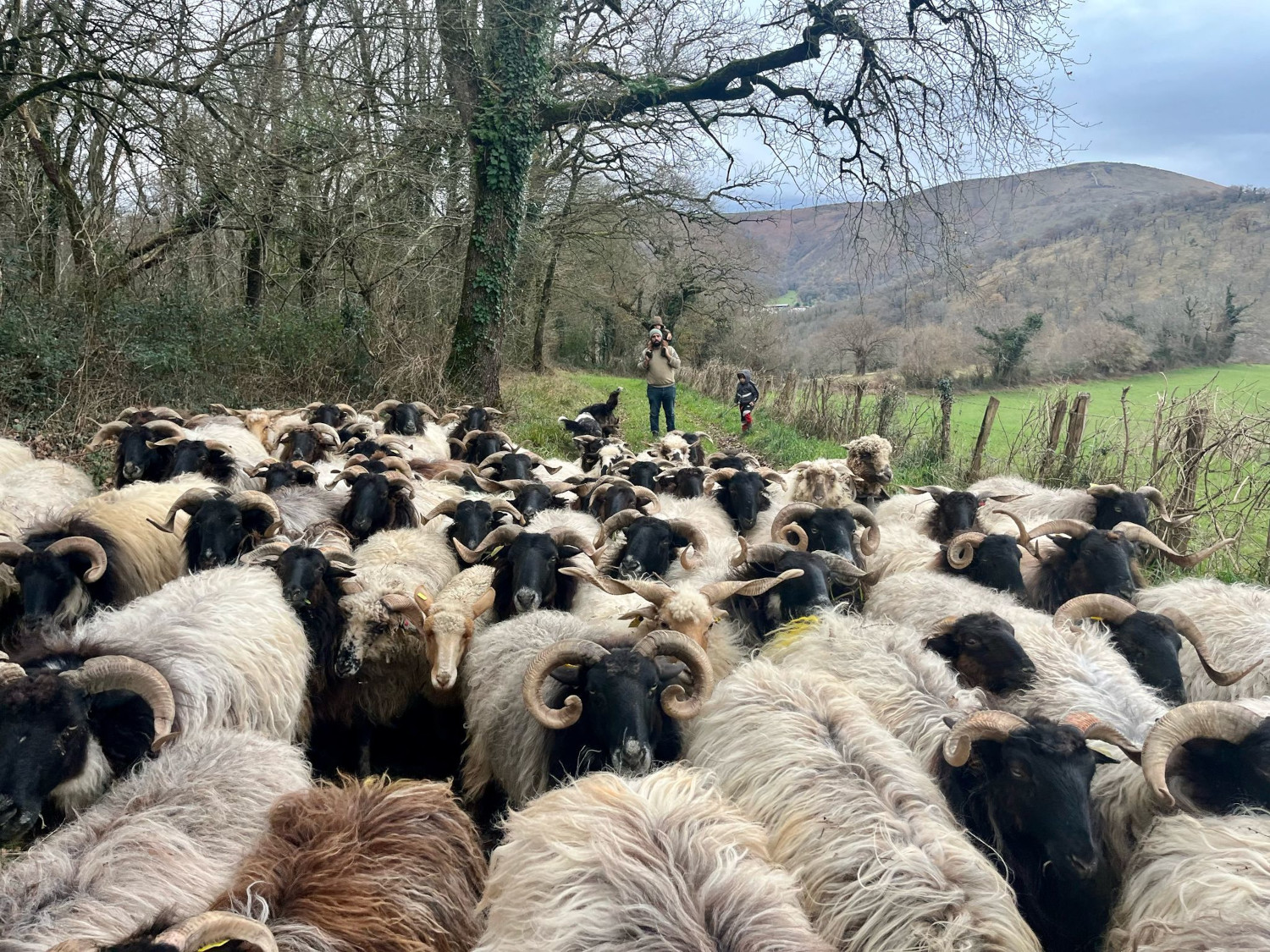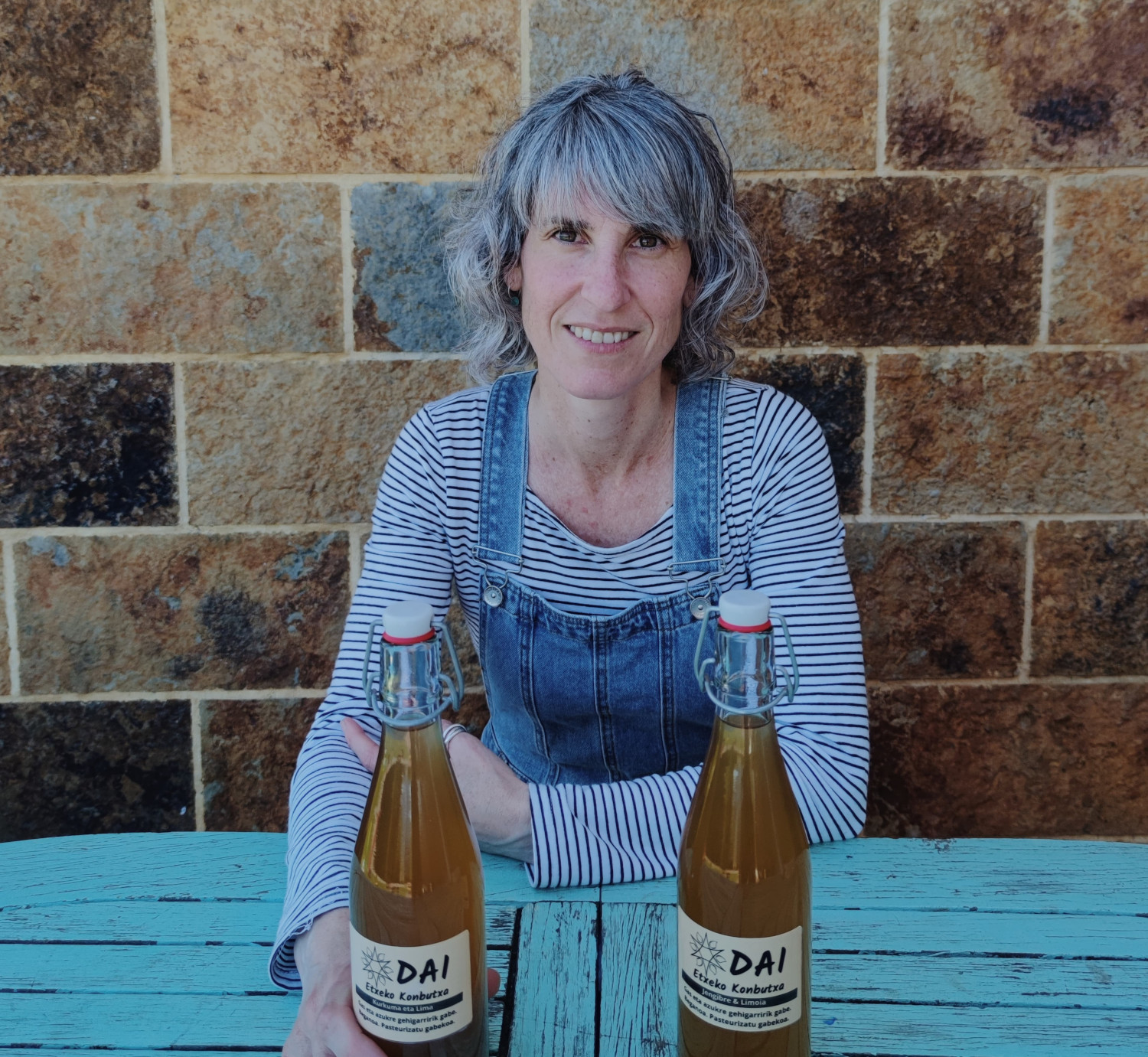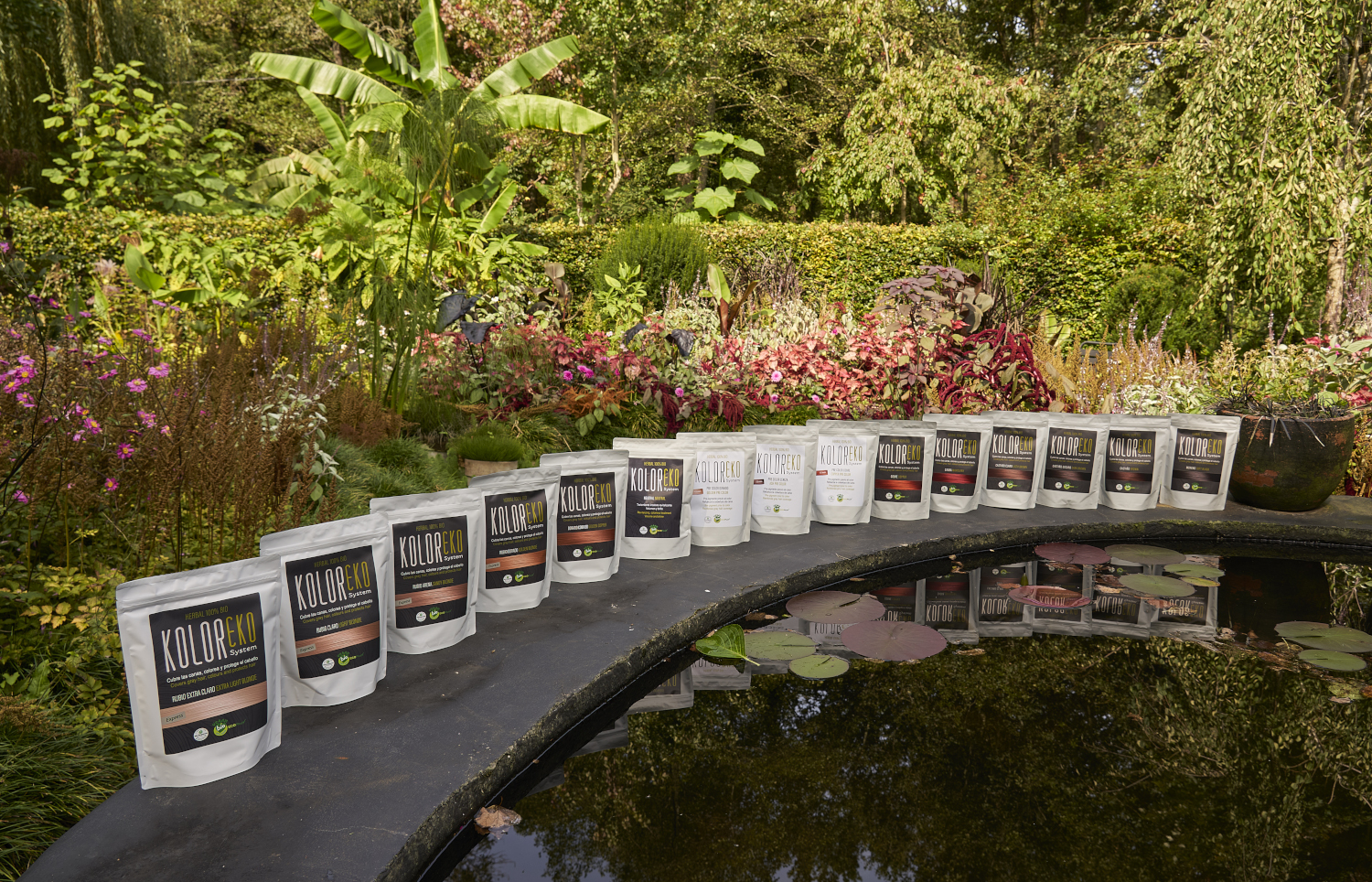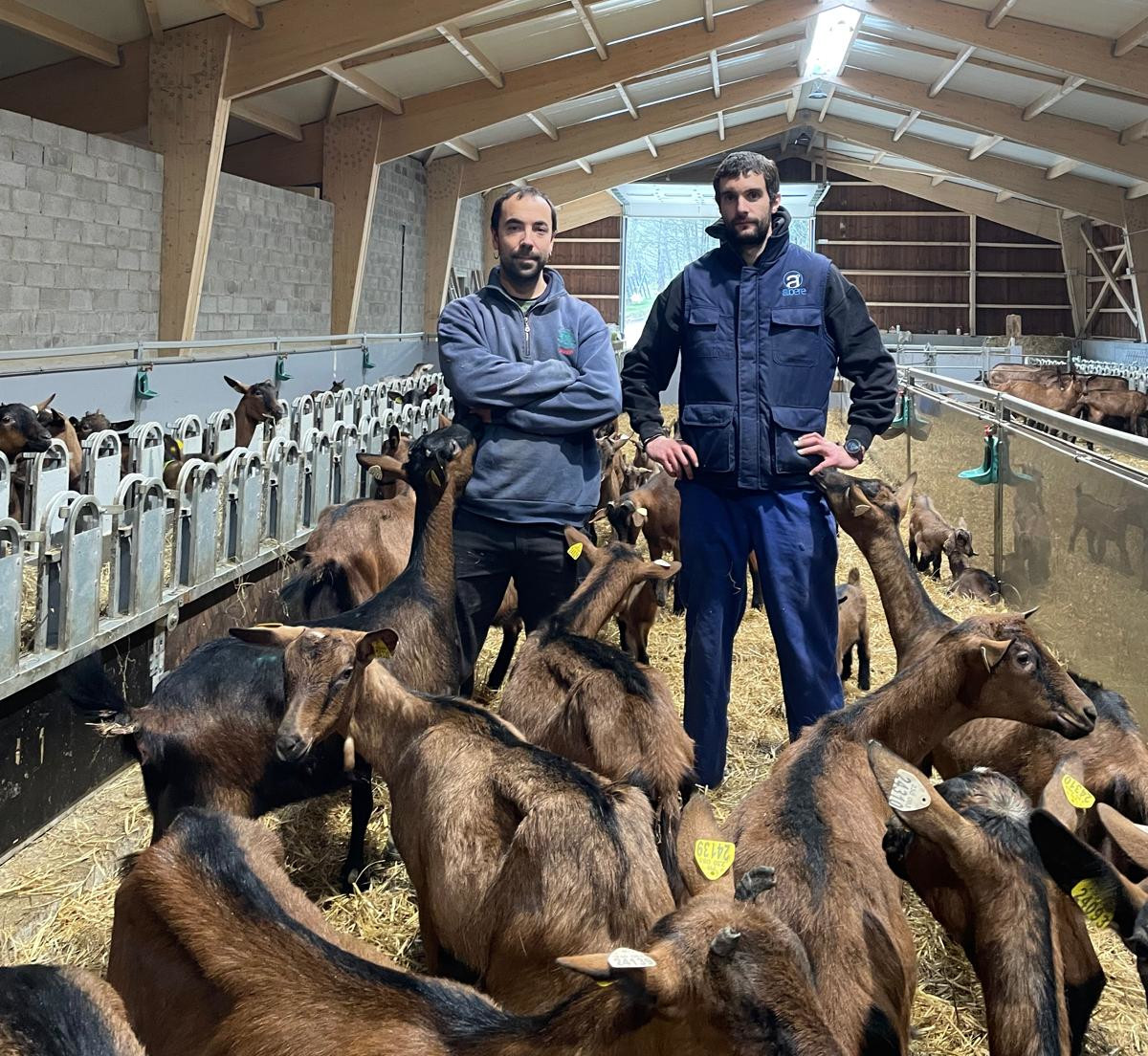Beekeeping, official hobby
- Navarro Haizea Belarra is immersed in the Erlanki beekeeping project of Bera, but his partner Mikel Lertxundi is also of great importance, as through it he began to gradually introduce himself into the world of Belarra beekeeping: “My partner started working with bees in 2015, so I worked as a cooking teacher.” However, when she became pregnant in 2017, she decided to quit her job and, for longer time off, started collaborating in the activity that Lertxundi touched. “I gradually started, but I spent more and more time … and in the end my trade became Mikel’s hobby!”

Although not professionally, they were already related to bees at Lertxundi's house. “Mikel’s parents have always had pollination bees in the orchard, but they did not focus on honey production, but on the benefit of the orchard.” On the other hand, an uncle also had bees and made honey. An accident forced him to leave and took over from Lertxundi. “The uncle gave her the bees, as well as the hives and all the material,” explains Belarra.
Thus he entered the world of beekeeping Lertxundi, with the help of his uncle, his parents and his own partner. Then he took over the Belarra project. “I am still in the learning process. Mikel is my teacher because when she started she received many courses and training,” she says. They are related to the association in favor of the black bee Erbel, in which he worked in his day Lertxundi. “We are working with the black bee, yes with the native bee. How not?” asks Belarra.
Beekeeping as a way of becoming aware
In Erlanka they produce four types of honey, two spring and two summer. But not only that: they also sell powdered flowers, propolis and live animals in packets or cores. “This year we are going to start with the royal jelly, but it will already be seen, because you lack childbirth,” says the beekeeper. All these products are sold mainly in small shops and fairs nearby, and also at home.
The grass has highlighted that the learning process of these years has served not only to deepen apiculture, but also to raise awareness: “This is not the only beekeeping, you learn a lot about our environment, it is a way to realize the importance of nature.” The disease of mud, Asian wasp and other difficulties make it increasingly difficult to be a beekeeper, but on the other hand, it perceives that gradually people become aware and value close and quality foods. “It’s not just about consuming honey, it’s about realizing that bees are necessary for this, as they are necessary to deal with nature.”
Duela lau urte abiatu zuten Azpeitian Enkarguk proiektua, Udalaren, Urkome Landa Garapen Elkartearen eta Azpeitiako eta Gipuzkoako merkatari txikien elkarteen artean. “Orain proiektua bigarren fasera eraman dugu, eta Azkoitian sortu dugu antzeko egitasmoa, bere izenarekin:... [+]
Donostiako Amara auzoko Izko ileapaindegi ekologikoak 40 urte bete berri ditu. Familia-enpresa txikia da, eta hasieratik izan zuten sortzaileek ile-apainketan erabiltzen ziren produktuekiko kezka. “Erabiltzaileen azalarentzat oso bortzitzak dira produktu gehienak, baina... [+]
Ubidekoak (Bizkaia) dira Imanol Iturriotz eta Aritz Bengoa gazteak. “Lagunak gara txikitatik, eta beti izan dugu buruan abeltzaintza proiektu bat martxan jartzeko ideia”, azaldu du Iturriotzek. Nekazaritzari lotutako ikasketak izan ez arren, baserri munduarekin eta... [+]
Iruñean bizi ziren Iñaki Zoko Lamarka eta Andoni Arizkuren Eseberri gazteak, baina familiaren herriarekin, Otsagabiarekin, lotura estua zuten biek betidanik. “Lehen, asteburuetan eta udan etortzen ginen eta duela urte batzuk bizitzera etorri ginen”, dio... [+]
Gipuzkoako hamaika txokotatik gerturatutako hamarka lagun elkartu ziren otsailaren 23an Amillubiko lehen auzo(p)lanera. Biolur elkarteak bultzatutako proiektu kolektiboa da Amillubi, agroekologian sakontzeko eta Gipuzkoako etorkizuneko elikadura erronkei heltzeko asmoz Zestoako... [+]
Emakume bakoitzaren errelatotik abiatuta, lurrari eta elikadurari buruzko jakituria kolektibizatu eta sukaldeko iruditegia irauli nahi ditu Ziminttere proiektuak, mahai baten bueltan, sukaldean bertan eta elikagaiak eskutan darabiltzaten bitartean.









